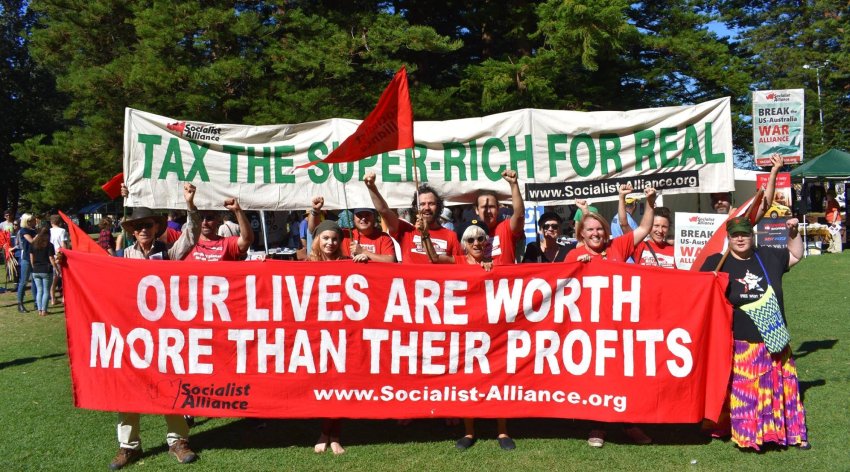
The Coalition and the Murdoch media’s shrill warnings about the threat posed to democracy and good governance if there is a “hung parliament” in which the Greens or independents hold the “balance of power” in the next parliament are as desperate as they are absurd.
If neither Labor nor the Coalition win a majority of first preference votes, then it is hardly unrepresentative if neither gains a majority in their own right.
In fact, if we had a more democratic system of proportional representation in the House of Representatives, like many national parliaments do, then minority governments would be the norm.
When you put aside the squabbling over the detail and the different social bases they appeal to, the Coalition and Labor do share the same strategic vision — to increase the profitability of capitalism while claiming to govern for all Australians.
This is why they support the fossil fuel industry, oppose a rise in JobSeeker and are pushing for greater military spending.
The majority of laws passing through parliament have the support of Labor and the Coalition.
This is the real parliamentary “balance of power”.
However the discussion about it helps pose the question as to where real power lies — parliament, corporate boardrooms or the street?
The long-term decline in the percentage of the primary vote going to either Labor or the Coalition is breaking up the old certainties of the two-party system.
For Labor, this means left-leaning voters have drifted to the Greens, while both Labor and the Coalition have lost votes to various kinds of right-wing demagogues and charlatans like Pauline Hanson’s One Nation and Clive Palmer’s United Australia Party.
Given the Coalition’s hidebound resistance to LGBTI rights, Prime Minister Scott Morrison’s awful response to sexist abuse and sexual assault in the federal parliament and the government’s stubborn climate change denialism, it’s hardly surprising that it has also alienated some of its traditional voters in the leafy, affluent suburbs of the capital cities.
It’s perfectly possible to be a wealthy professional and support equal marriage, or to understand the reality of climate change while clinging to the belief that capitalism can go green.
Kate Chaney, one of the so-called “teal independents” in the Perth seat of Curtin, sums up this political positioning when she describes herself as “socially progressive and economically responsible”.
While the climate policies championed by the teal Independents are insufficient, their victory over Liberal incumbents would still be welcome, mostly because it would open more political space for debate about what an adequate response to the crisis might look like.
Nevertheless, anyone in any of the seats they are contesting would still send a stronger message by voting Green.
The Greens have made a strong pitch for the balance of power to advance their own left-of-centre program.
While this would enable them to extract some concessions from a minority Labor government, just holding the balance of power would be insufficient to make serious progress with their more ambitious policies such as: a treaty with First Nations people; free dental and mental healthcare; eradicating student debt; building 1 million publicly-owned, affordable, sustainable homes and overhauling labour laws to outlaw insecure work and raise wages.
The fact is that Labor would combine with the Coalition to block most of the Green’s reforms. Getting any of them over the line will require significant grassroots political pressure on Labor, such that it fears losing more of its base to the Greens.
As for action on climate sufficient to avert runaway global warming, that will take a struggle never before seen in this country.
Labor, in its current form, will need to be completely displaced. Its commitment to the expansion of oil and gas mining and continued public subsidies for the fossil fuel corporations are proof of this.
We still have a long way to go to build a political force big enough to begin to overcome the ferocious resistance of big business and its death grip on Australian politics. Its response to former Labor PM Kevin Rudd’s mild 40% Resource Super Profits Tax in 2010 is a reminder of this.
Kicking out Morrison and electing a minority Labor government dependent on Greens support on May 21 would open up opportunities to push harder for progressive reform. But to ensure they win, we have to build our balance of power on the streets, at our workplaces and in our communities.
Another world is possible, but we’ll have to fight for it.
[Sam Wainwright is a co-convenor of Socialist Alliance. He is running for the seat of Fremantle.]